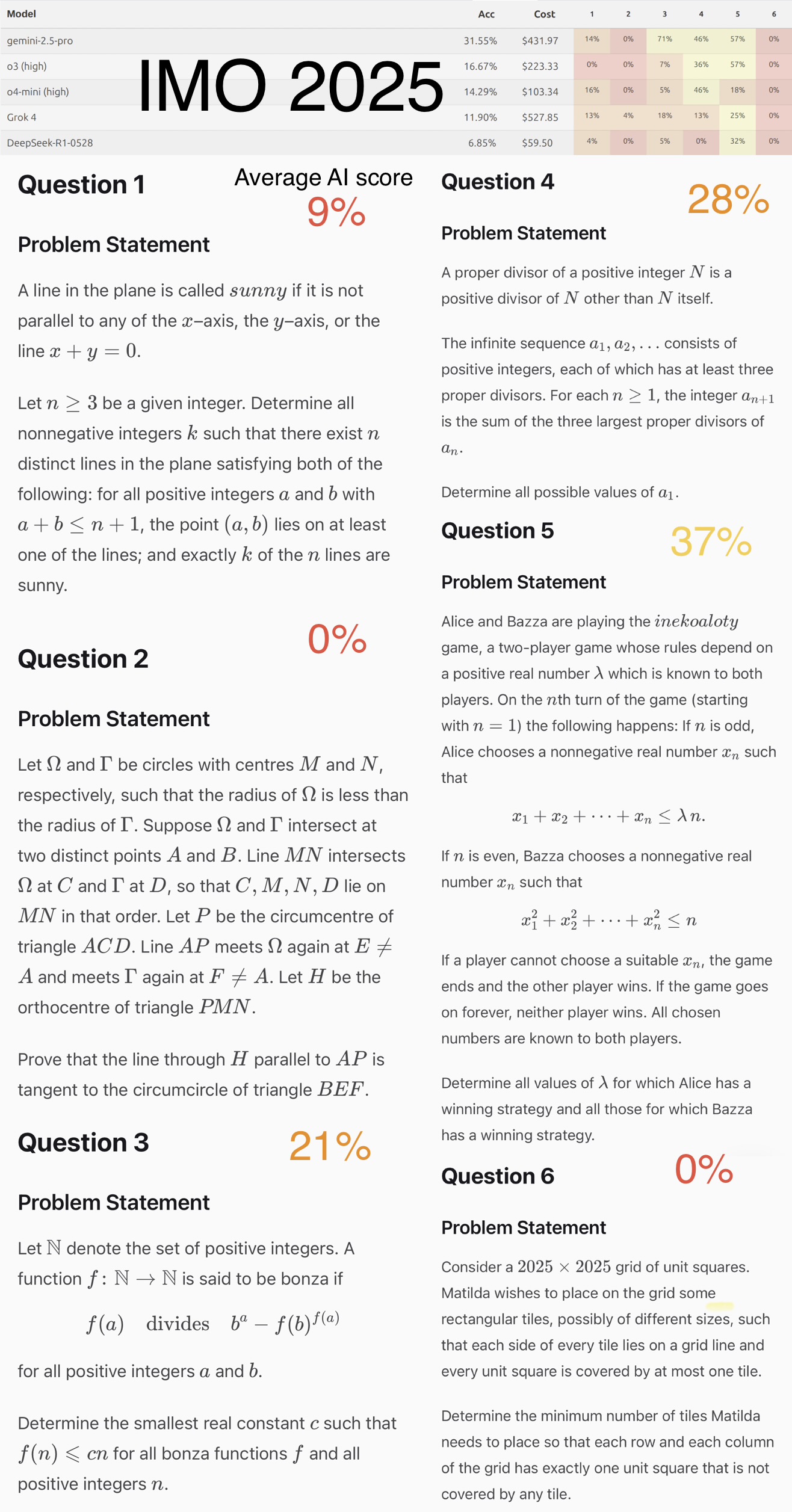A_Gupta wrote: ↑21 Jul 2025 17:54
@Amber G, my interest is not so much in how to solve as in how they came up with these problems, and how they tested that they are indeed suitable for the Olympiad. Any idea?
Ah, great question! So the IMO problems aren’t just cooked up by one committee somewhere—they actually come from all over the world.
Each participating country can submit problem proposals ahead of time. These get collected into a big shortlist—usually 30–35 problems. Then, during the Olympiad itself, a jury (with representatives from each country) discusses, debates, and finally selects 6 problems to appear on the actual exam.
They look for a nice mix—algebra, geometry, number theory, combinatorics—with different levels of difficulty. The problems go through serious vetting to make sure they're original, elegant, challenging but not impossible, and that they haven’t been floating around online already.
Fun fact: some problems have even come from very young authors—there was one a few years ago where a high school student (India) submitted a problem that made it into the final 6!
This year’s (2025) selected problems, for example, came from:
USA (Problem 1 by Linus Tang)
Vietnam (Problem 2 by Quang Hung Tran)
Colombia (Problem 3 by Lorenzo Sarria)
Lithuania (Problem 4 by Paulius Aleknavičius)
Italy (Problem 5 by Massimiliano Foschi & Leonardo Franchi)
Singapore (Problem 6 by Zhao Yu Ma & David Lin Kewei)
(Yours truly has been involved in authoring or reviewing for this and similar contests—so I can say firsthand, it's a fascinating and humbling process.)
If you're curious, you can even check out the full shortlist and jury documents on the official site:
https://www.imo-official.org or similar sites for national contests for USA and India

